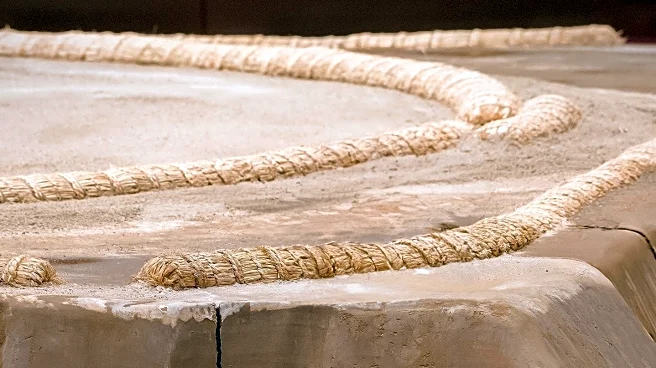What is the story about?
What's Happening?
Researchers have conducted a study on Britain's prehistoric trash piles, known as middens, revealing that during the Bronze Age, people traveled long distances to participate in large feasting events. The study, led by archaeologist Richard Madgwick, utilized isotope analysis to trace the origins of butchered animals found in these middens. The findings indicate that these feasts were significant social events, fostering relationships within and between communities during a period of climatic and economic instability. The research highlights the role of feasting in sustaining regional economies and expressing community identities.
Why It's Important?
This study provides insights into the social dynamics and economic strategies of Bronze Age communities in Britain. The feasting events served as a means of social mobilization and relationship building, which were crucial during times of instability. Understanding these historical practices can offer valuable lessons for contemporary societies facing similar challenges. The research also contributes to the broader understanding of prehistoric social networks and economic systems, highlighting the importance of communal activities in sustaining communities.
Beyond the Headlines
The study raises questions about the cultural significance of feasting and its role in community cohesion. It suggests that such events were not only about sustenance but also about reinforcing social bonds and identities. The findings may prompt further research into the cultural practices of prehistoric societies and their adaptation strategies during periods of change. Additionally, the study underscores the importance of interdisciplinary approaches in archaeology, combining scientific techniques with historical analysis to uncover complex social phenomena.















